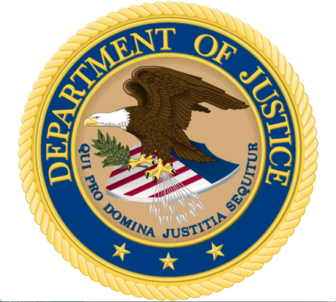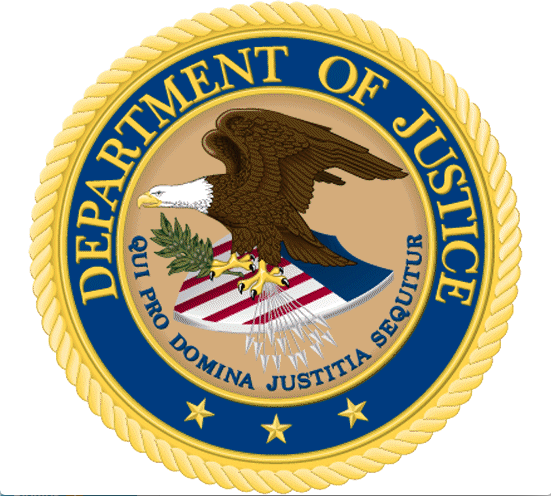Pablo Calderon, 61, of Darien, was one of two men found guilty in federal court Wednesday in a scheme to defraud a U.S. Department of Agriculture export program by forging shipping documents.
The scheme made millions of dollars for the criminals, and foreign banks as well, costing the federal government $25 million when various banks defaulted on loan payments.
At Calderon’s sentencing, scheduled for Feb. 2, he faces up to 20 years in prison.
Here’s the announcement about the verdict, issued by the U.S. Attorney’s Office in New Haven:
A federal jury in New Haven has found Brett C. Lillemoe, 46, of Minneapolis and Pablo Calderon, 61, of Darien guilty of conspiracy and fraud offenses related to a multimillion dollar scheme to defraud banks participating in a USDA-backed export financing program.
Lillemoe, Calderon and a third defendant were found not guilty of additional offenses. The trial before Chief U.S. District Judge Janet C. Hall began on Oct. 5, and the verdicts were returned Wednesday afternoon.
According to court documents and statements made in court, Lillemoe and Calderon submitted fraudulent documents to two United States banks in connection with a USDA loan guarantee program by which the USDA provides credit guarantees.
What the Program Does
The credit guarantees are part of the USDA Export Credit Guarantee Program (GSM-102), which is designed to encourage financing of commercial exports of U.S. agricultural products.
The GSM-102 program guarantees credit extended by U.S. financial institutions to approved foreign banks. As part of the program, the Commodity Credit Corporation (CCC), which is an agency and instrumentality of the USDA, enters into payment guarantees (“credit guarantees”) with the goal of encouraging exports of U.S. agricultural products, including products of American farmers and American ranchers.
 The credit guarantees are designed to encourage exports to buyers in foreign countries — mainly developing countries. The program operates in cases where credit is necessary to increase or maintain U.S. exports to a foreign market and where U.S. financial institutions might otherwise be unwilling to provide financing without the guarantee backed by the United States Government.
The credit guarantees are designed to encourage exports to buyers in foreign countries — mainly developing countries. The program operates in cases where credit is necessary to increase or maintain U.S. exports to a foreign market and where U.S. financial institutions might otherwise be unwilling to provide financing without the guarantee backed by the United States Government.
In providing the credit guarantee facility, the CCC seeks to expand market opportunities for U.S. agricultural exporters and assist long-term market development for U.S. agricultural commodities.
In connection with the GSM-102 program, a foreign importer that has contracted to buy U.S. agricultural products can apply for a letter of credit (“LOC”) from a foreign bank that has been approved by the USDA’s Foreign Agricultural Service (FAS).
The foreign bank then issues a letter of credit in favor of the U.S. exporter. The U.S. exporter then, consistent with the requirements of the GSM-102 program, presents proper shipping documents to an approved U.S. financial institution, including a copy of an original bill of lading, certificate of origin, and evidence of export.
The U.S. financial institution then provides funds to the U.S. exporter which, in exchange, assigns the rights to the proceeds payable under the letter of credit from the foreign bank to the U.S. financial institution in the same dollar-denominated amount, less any fees.
If the foreign bank defaults on its payments to the U.S. financial institution, the U.S. financial institution may submit a claim to the USDA FAS under the guarantee for up to 98 percent of the payment amount owed at the time of the default.
The jury found that between September 2007 and January 2012, Lillemoe, Calderon and others defrauded various U.S. financial institutions, including Deutsche Bank A.G. and Colorado-based CoBank ACB, by presenting false and altered shipping documents, including altered bills of lading, in connection with securing funding on loans guaranteed by the GSM-102.
How the Scheme Worked
As part of the scheme, Lillemoe and Calderon established multiple entities with separate names for the purpose of obtaining a greater share of the allocation of guarantees from the GSM-102 program, and used multiple bank accounts in the names of the various entities in order to further create the appearance that the entities were operating as separate and unrelated entities.
The defendants then, in various ways, paid for or otherwise acquired bills of lading and other shipping documents for shipments of agricultural products that they did not physically ship and for which they did not participate in the physical movement of the products in any capacity.
Lillemoe entered into agreements with foreign banks, including International Industrial Bank (IIB) in Russia, to provide them capital that would be made available to them from a U.S. financial institution through the use of the GSM-102 program. Lillemoe subsequently obtained letters of credit from the foreign banks.
Lillemoe, Calderon and others then altered copies of certain shipping documents, including bills of lading marked “Copy non negotiable,” by whiting out portions of the documents, stamping the word “original” on the documents, and adding shading on certain sections of the bills of lading.
The defendants also prepared and executed documents termed “commercial invoices” purporting to represent sales of agricultural commodities between entities that they controlled, as well as between entities that they controlled and other entities.
The defendants then used these fraudulent documents to obtain millions of dollars from U.S. banks in connection with the GSM-102 program, and then provided the funds to the foreign banks in exchange for a percentage fee for themselves and their various entities.
As established at trial the defendants and their co-conspirators made millions of dollars of fees as part of the conspiracy. Although the foreign banks were obligated to repay the funds to the U.S. financial institutions by virtue of the letters of credit issued to the U.S. financial institutions, in a number of instances, the foreign banks failed to do so.
Nevertheless, Lillemoe, Calderon and their various entities retained millions of dollars of fees they had collected in connection with the GSM-102 transactions and in some instances, sent a portion of those fees to various financial backers in places such as Singapore.
Through this scheme, the foreign banks defaulted on over $25 million of loans for which the USDA’s GSM-102 program had to pay out the guarantees.
Jury Finds Two Guilty
On Feb. 20, 2015, a grand jury returned a 23-count indictment charging Lillemoe, Calderon, and Sarah Zirbes of Minneapolis with conspiracy, fraud and money laundering offenses.
The jury found Lillemoe and Calderon guilty of one count of conspiracy to commit wire fraud and bank fraud, and Lillemoe guilty of five counts and Calderon guilty of one count of wire fraud.
The jury found Lillemoe, Calderon and Zirbes not guilty on the remaining counts of wire fraud, one count of bank fraud and one count of money laundering.
Calderon also was found not guilty of lying to the IRS and the FBI in connection with statements he made to the federal agents from those agencies.
Lillemoe is scheduled to be sentenced on Feb. 1, 2017, and Calderon is scheduled to be sentenced on Feb. 2. They face a maximum term of imprisonment of 20 years on each count.
This matter was investigated by the Federal Bureau of Investigation, Internal Revenue Service – Criminal Investigation Division and U.S. Department of Agriculture, Office of Inspector General. The case is being prosecuted by Assistant U.S. Attorneys Michael S. McGarry, John H. Durham and John T. Pierpont, Jr.


